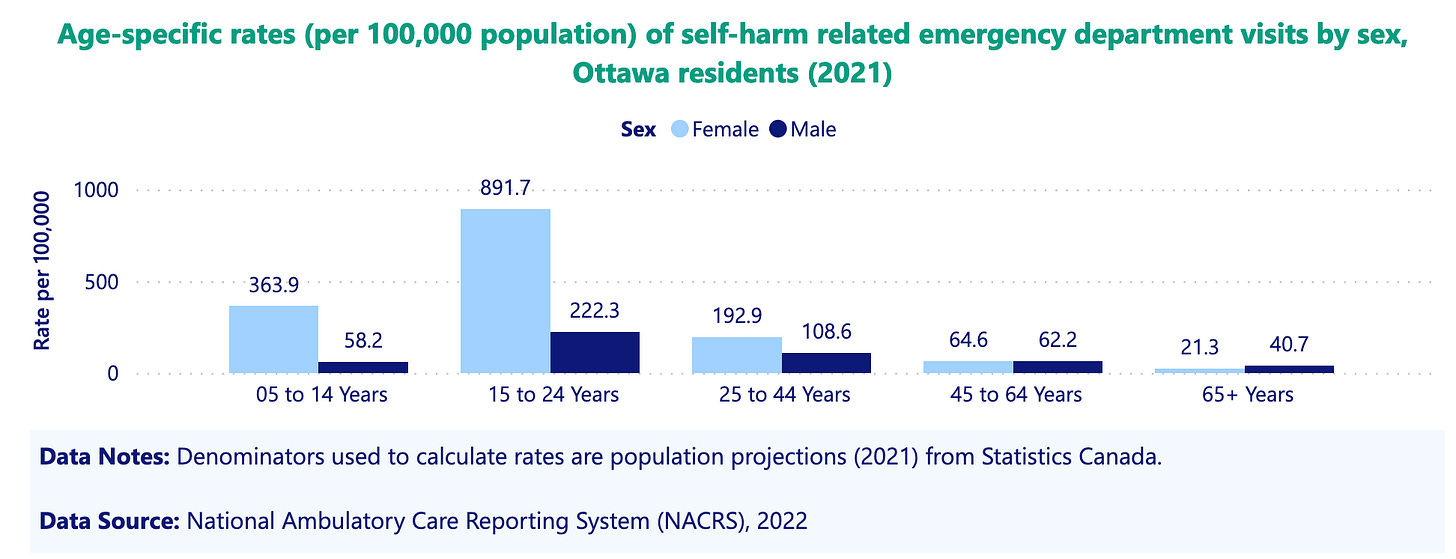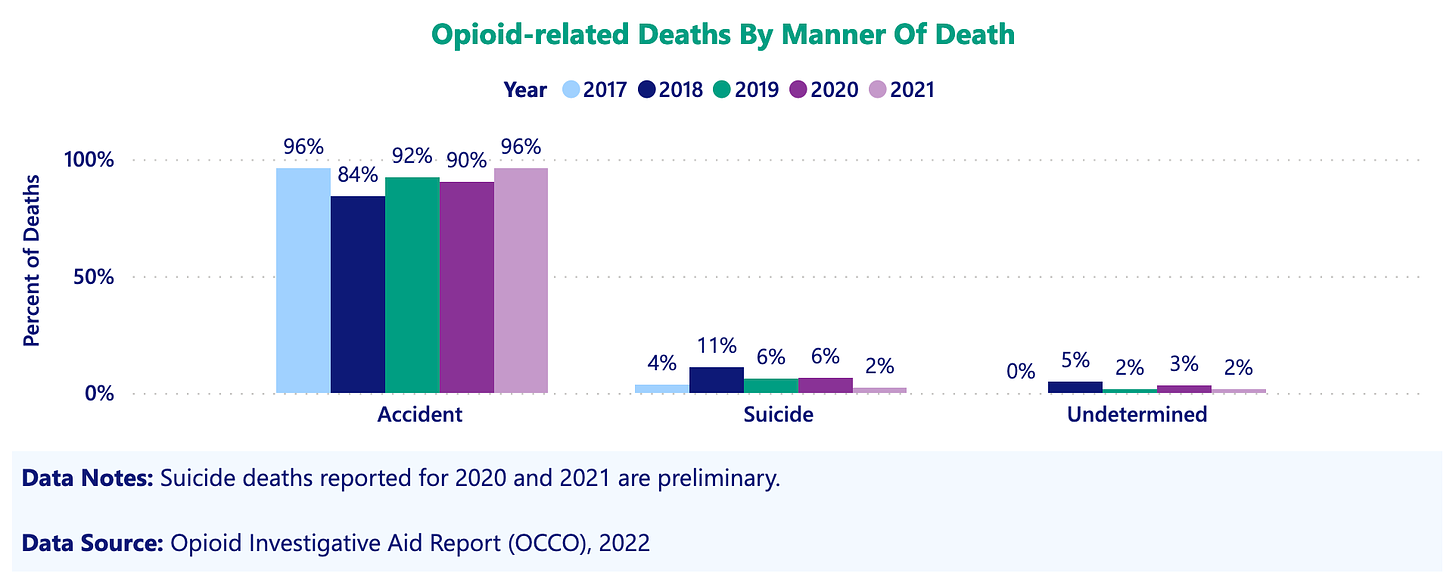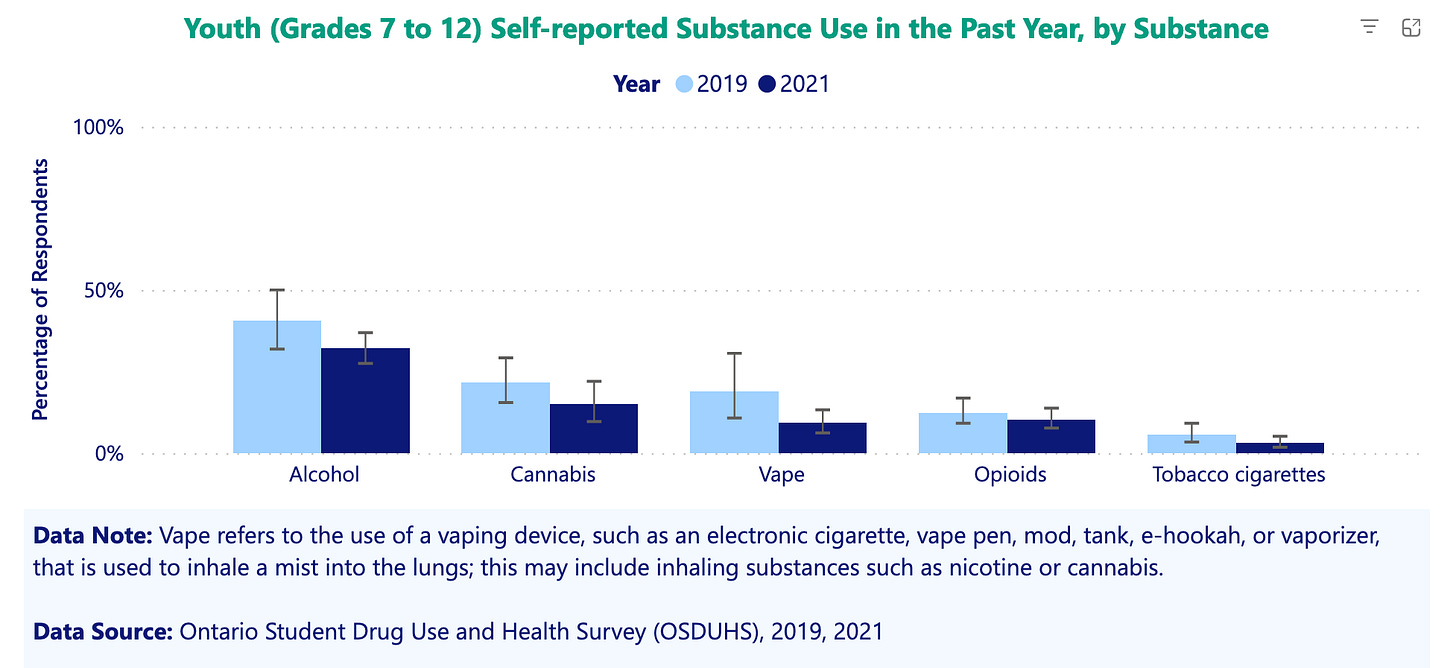Ottawa Public Health has launched the first phase of a new Mental Health, Addictions and Substance Use Health Community dashboard.
This idea came up a couple years ago at a Board of Health meeting, after we saw the impact of OPH’s COVID-19 dashboard and vaccination dashboard. (Both of which are still being updated – even if they don’t get the same attention these days as during the height of the pandemic.)
The data presented in the mental health dashboard has been available in different places before, but this is the first time it has been aggregated and presented in this way. The goal, says OPH, is “to better plan, develop and coordinate services by using a common dataset to track and measure the status and outcomes of Ottawa’s population on mental health, addictions, and substance-use health.”
CBC’s Robyn Bresnahan interviewed Ben Leikin who manages OPH’s mental health programs. Click here to listen - less than five minutes. Leikin says: “We know that stigma prevents people from seeking help, early or at all, and it also robs people of having a support system in their life as they go through something. Something we heard loud and clear is to bring that data out around stigma, around what might be barriers about why people don’t reach out, making that available so we can take steps to address that.”
“One example is we have data on how many people wanted to reach out to someone in the last year for mental health supports but didn’t know where to turn… We know that roughly the average for that is anywhere from 25-30% of people. We also know we have data that shows for certain communities (lower income communities, racialized communities), that number goes up to 40-44% of people who wanted to reach out for help in the last year but didn’t know where to turn. So by having that data, this can help with our interventions, with our outreach.”
Here are a few sample screen shots of available dashboards. Congrats to the team at OPH for launching this.
An interview with Neil Hetherington, CEO of the Daily Bread Food Bank
David Herle’s interviews with Canadian decision-makers and policy experts are always excellent. This one was really impactful. It’s about food insecurity in Ontario. The Daily Bread Food Bank in Toronto is now seeing four times more client visits than before than pandemic. Our food banks in Ottawa are also experiencing a surge in demand.
The Daily Bread had 270,000 client visits in March – over 4x the number of client visits pre-pandemic.
The cost to serve clients has escalated from $1.5-million per year to $1.8-million per month.
A large portion of their clients are people receiving disability benefits. In Toronto: “If you’re on disability, you get $1200 a month. The poverty line is $2100 in Toronto. Every month, somebody on disability is legislated to be in poverty by $900, and that is fundamentally wrong… If you really want to solve this, you’ve got to address disability payments. They’ve got to be somewhat reasonable.”
The depth of food insecurity increased during the pandemic. The average food bank user has $8.01 per day to survive on after paying the rent and utilities, and it’s less for new Canadians. About 1/3 of clients go without a meal at least once a week, and there’s probably an under-reporting of children who have missed a meal.
Affordable housing is a thread through the conversation, including the need for more supportive housing and rent-geared-to-income housing.
Related: The Ottawa Mission served over 14,000 meals in the week leading up to Easter. That’s a record for the organization.






